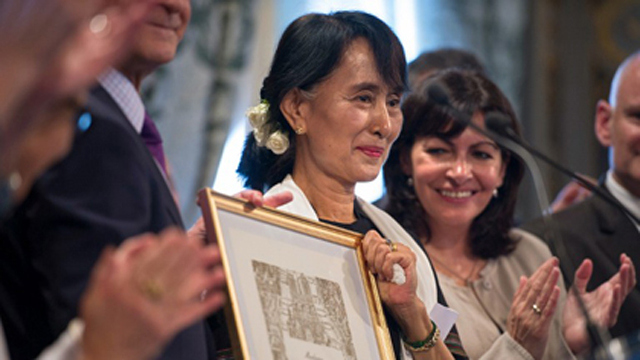SUMMARY
This is AI generated summarization, which may have errors. For context, always refer to the full article.

KATHMANDU, Nepal – Myanmar opposition leader Aung San Suu Kyi on June 16, Monday, accused her country’s election commission of bias and rejected warnings to modify her language towards the military ahead of next year’s polls.
Since she became a lawmaker two years ago, the former political prisoner-turned-politician has been campaigning to amend a military-drafted constitution that bars her from becoming president. (READ: Suu Kyi wants to run for president)
But the country’s top election body last month warned her against using language that “challenges the army” during her rallies. (READ: Suu Kyi supports charter change)
Speaking at the end of a four-day state visit to Nepal, Suu Kyi said “the election commission is not the most neutral one in the world”.
“It is not the work of (the) elections commission to warn me or other leaders of what we should say or what we should not say,” she said in Kathmandu.
The 2008 constitution blocks anyone whose spouse or children are overseas citizens from leading the country — a clause widely believed to be targeted at the Nobel laureate, whose two sons are British.
“The constitution was written with me in mind… this is of course unacceptable, democratically speaking, that one person should be targeted by any particular constitution,” she said.
Suu Kyi, 68, was released from years of house arrest in 2010. A quasi-civilian government led by former general Thein Sein has since pushed reforms that have ended sanctions and overturned Myanmar’s status as a global pariah.
Parliamentary elections due to be held in 2015 are seen as a definitive test of whether the army is willing to loosen its grip on power.
The constitution currently reserves a quarter of seats in parliament for unelected military personnel. – Rappler.com
Add a comment
How does this make you feel?
There are no comments yet. Add your comment to start the conversation.